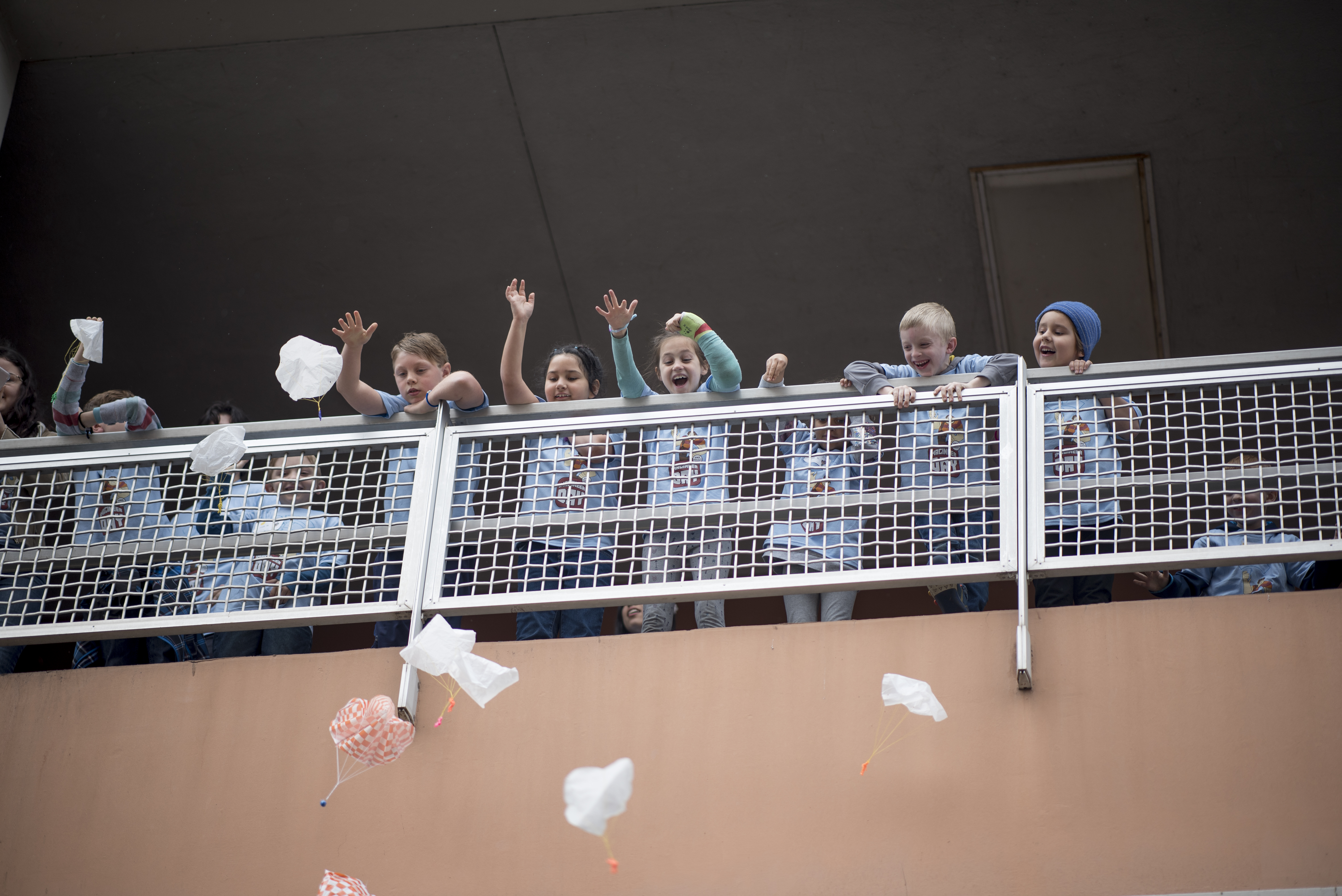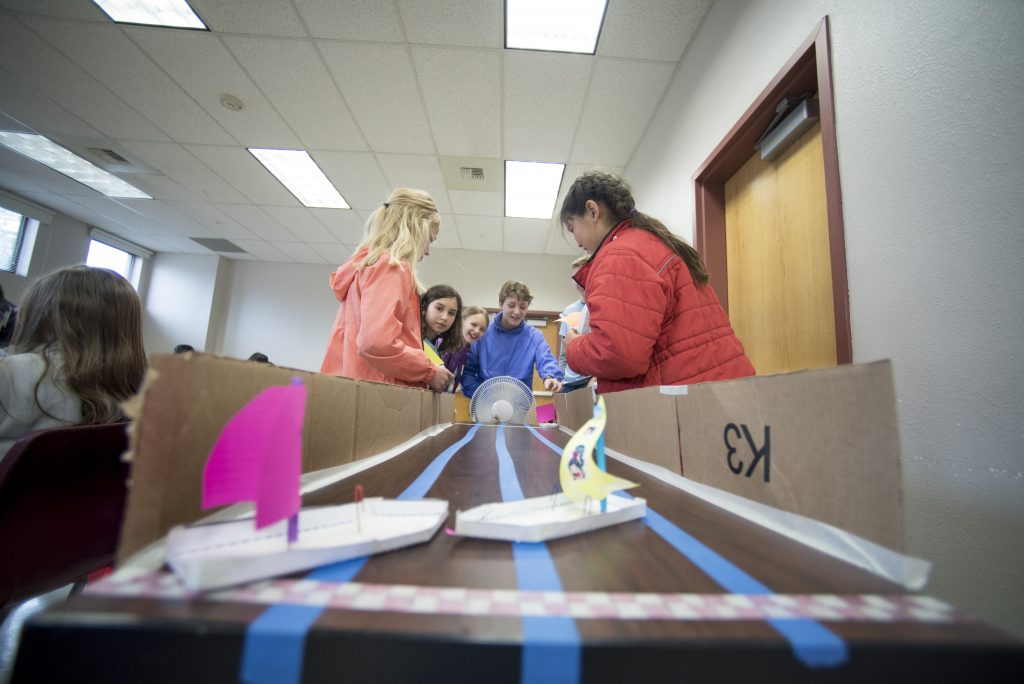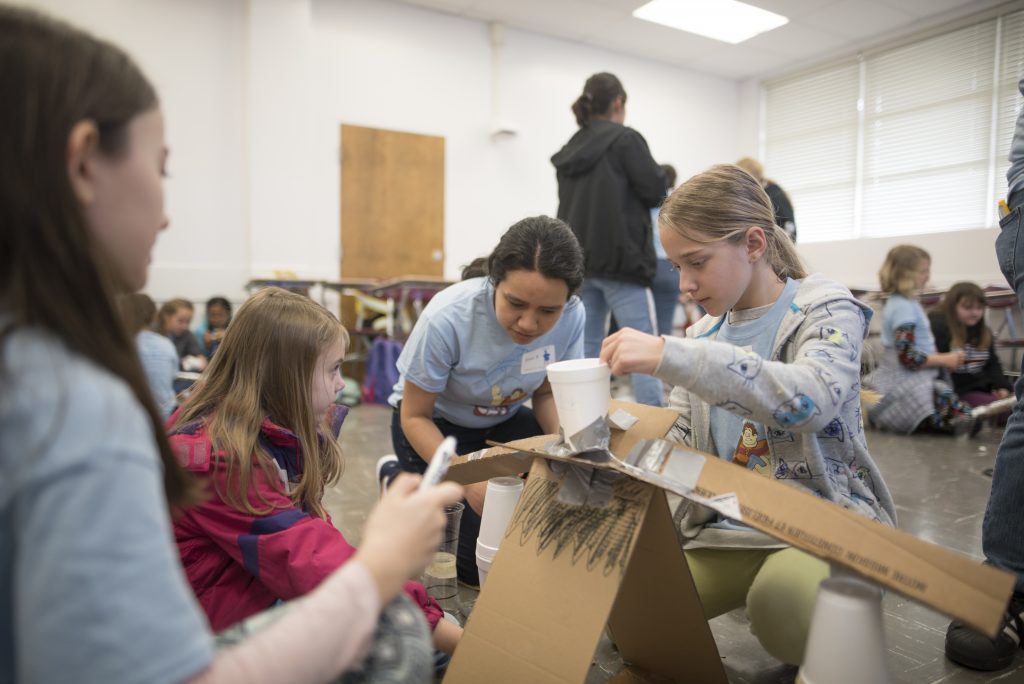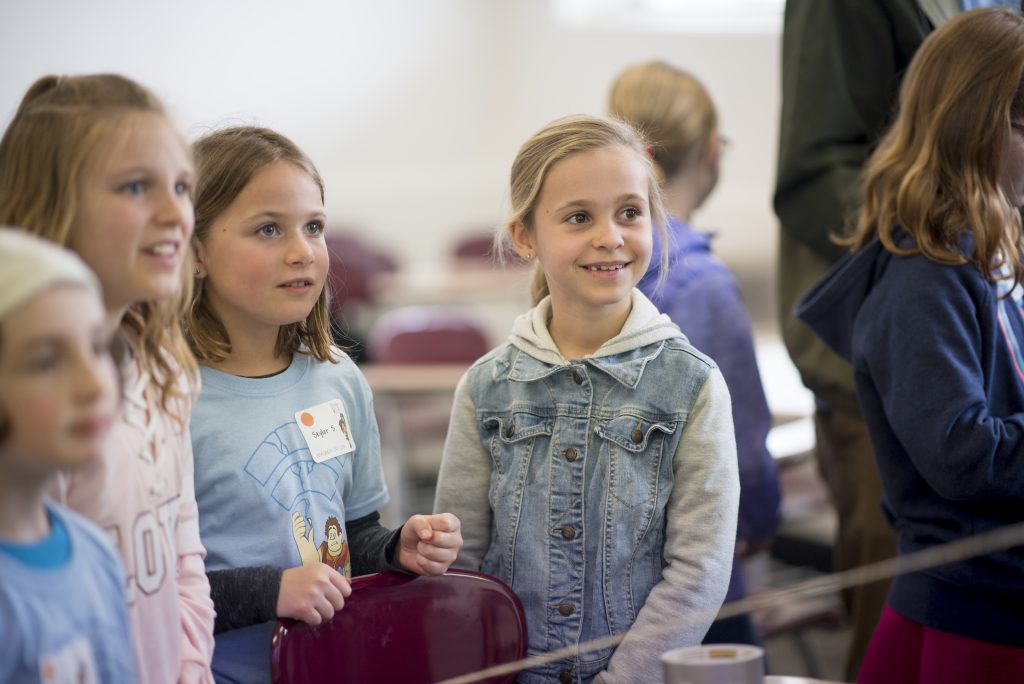Imagineer Day Stirs Young STEM Minds

Highly successful women in business alums speak and host workshops through an event hosted by the American Marketing Association and the Association for Women in Business during the College of Business Women in Business Summit on Saturday, March 2, 2019 in Chico, Calif. (Jessica Bartlett, University Photographer)
As 3-D robotic hummingbirds buzz around one Chico State classroom, LED lights create sound in another, while, somewhere else, a future aerospace engineer’s mind is sparked by the basics of stability, lift, and friction.
These were among the many concepts taught and learned at Chico State this spring at the seventh annual Imagineer Day, a science, technology, engineering, and mathematics outreach event introducing K–8 students to the wonder and wide-ranging field of STEM. Coordinated by the University’s Society of Women Engineers (SWE), nine campus clubs and more than 100 Chico State student volunteers hosted lively, engaging, and educational lessons spanning multiple disciplines for more than 220 local K–8 students.

On-and-off rain showers couldn’t dampen the moods of Imagineer Day campers, as their excited voices and giggles soared through the hallways, classrooms, and courtyards of O’Connell Technology Center and Langdon Engineering Center. Within the sea of baby blue T-shirts and between crawling, rolling, and floating experiments, SWE opened the doors of engineering to the next generation.
“Using fun hands-on engineering activities, we’re teaching them concepts like friction, physics, materials, and quality testing,” said SWE chapter president Shelby Freese, a sustainability manufacturing major graduating in May. “These are really hard topics for us to learn at the college level, but they’re learning about those topics at their level. It’s all about getting them exposed to those concepts early on.”
SWE has been the driving force behind Imagineer Day from its beginning. Freese said the annual event is an opportunity for young students to learn about engineering through hands-on experiences, gleaning more than just learning from a textbook.

Her own interest in engineering concepts was ignited at a young age, racing BMX bikes and go-carts growing up in a family of racers. She was introduced to engineering concepts early on in her life and gained valuable hands-on experience.
“I learned basic things like tire pressure and how the ground temperature correlates to how much air you put in your tire,” Freese said. “That helps now [with my major], but I was learning that when I was 8.”
It’s that same kind of early knowledge and excitement she hopes to cultivate in Imagineer Day attendees. Studies suggest the earlier K–8 students are exposed to engineering concepts, lessons, and activities, the more likely they are to pursue those fields in high school, college, and beyond. The effect is even more significant in girls.
Hadil Mustafa, assistant professor in Chico State’s Department of Electrical and Computer Engineering, said women’s participation in all fields of engineering remains well below that of men. Additionally, the number of women earning engineering and computer science degrees in higher education has taken a dip over the last 15 years—including at Chico State.
In her paper reflecting on Imagineer Day, “Impact of ‘Imagineer Day,’ an Outreach Program, on K-8 Girls and Women in Engineering,” Mustafa writes “while the number of women in certain STEM fields, such as biology, chemistry, and math, has increased in the last decade, it had declined in computer science and engineering.”
And, while K–8 students gain an important cursory understanding of engineering at Imagineer Day, Mustafa wrote “it has also provided a unique opportunity for undergraduate female engineering students to develop communication and leadership skills.”
Deploying the use of resources like toy parachutes, gravity, and common household items, such as string, straws, and Popsicle sticks, Chico State students led basic experiments that sparked imaginations.

This year’s Imagineer Day also benefitted from a financial gift from executive vice president of the Change Happens Foundation and Chico State graduate Mike Troxel (Business Administration, ’99). Troxel said the foundation, which happily supports environmental, educational, and scientific causes, is always looking for opportunities to help put technology in the hands of eager young minds.
“We are extremely pleased to partner with the wonderful Chico State campus in helping to build a more inclusive IT industry that reflects the many talents of the total community,” Troxel said. “It is our hope that eventually professor Mustafa and the student members of the Society of Women Engineers can develop Imagineer Day into an ongoing afterschool program that can increase the impact of this important STEM skills training event.”
Mustafa hopes this may happen as soon as the 2019–20 academic year.
Troxel credits Chico State for providing him with “a superior education,” and said he is committed to do his part to help introduce young scientific minds to the wonders of engineering—especially minds of those students who aren’t afforded opportunities like Imagineer Day.
“Having worked in the IT industry, I have seen a lack of diversity and inclusiveness within teams, with respect to females, Hispanic folks and African Americans,” Troxel said. “When Ahmad Boura of the University Foundation approached me with the idea to assist my favorite campus with a STEM program that includes a social justice component, it was a no-brainer triple-threat win for everybody involved.”


